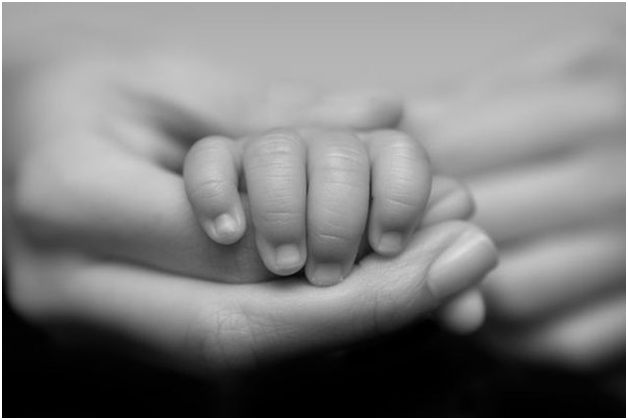
Note: In California, guardianships are legal arrangements in which an adult who generally is not a child’s parent is appointed to care for the child. If you are seeking the authority to manage the personal and/or financial affairs of an elder or incapacitated adult, you will benefit from reviewing our articles on conservatorship, types of probate conservatorship, the role of a conservator, and how to get a conservatorship.
Separating children from their parents is rarely the preferred choice, but when children come into harm’s way as a result of their parents’ negligence or bad behavior, or if parents expect to be away for an extended period of time, it may be the only way to protect them.
The good news is, in order to meet the varying needs of every family, the state offers several types of guardianships for minors.
Perhaps a teacher has learned that one of her student’s parents are drug addicts, and she is concerned the child resides in an unsafe home environment as a result. While he does not wish to permanently assume responsibility of the child, she is willing to care for the child while the parents seek help for their substance abuse issues. Could the teacher seek a temporary legal guardianship over her student?
Perhaps a tragic car accident left a child orphaned, and now a neighbor would like to step in to care for the child until the child turns 18. Could the neighbor obtain a permanent guardianship over the child to keep the child under their care until they become an adult?
Petitioning for the right type of guardianship is essential not only in ensuring the guardianship achieves its purpose but also in convincing the court to approve the guardianship.
In the following sections, we delve into the different types of guardianship in California. If you continue to have questions about guardianships, call us to request a free consultation with one of our guardianship attorneys.
What Is Guardianship?
A guardianship is a probate court proceeding in which the court appoints an adult (called the guardian) to step in and care for a child (called the ward) either temporarily or until the child turns 18 through a legal arrangement known as a guardianship.
Typically, guardians are appointed when the ward’s biological parents are either no longer in the picture or are unfit to parent. Guardianship responsibilities and rights are very similar to parental responsibilities and rights. In other words, guardians are fiduciaries who are obligated to act in the child’s best interest at all times.
Many parents, once they have a child, execute a new will or a codicil (an amendment to their will) nominating an adult to serve as their child’s guardian in the event they die or are incapacitated. The court may take this nomination into consideration when appointing a guardian, although it is not required to act in accordance with the terms of the document.
In guardianships, parents generally retain some rights (e.g., maintaining reasonable contact with their child) unless the terms of the guardianship specifically limit parental rights.
What Is a Guardian?
A guardian is an adult (typically someone other than a child’s parent) who the court has appointed to manage the personal and/or financial affairs of a child. A guardian must be 18 or older, but they do not have to be related to the child.
The type of guardian the court will appoint depends on a variety of factors, including on the needs of the child and the child’s family situation. A guardian can either be a guardian of the person or a guardian of the estate. We go into the meanings of these terms in the following sections.

What Is a Guardian of the Person?
While it is possible for a child to have both a guardian of the estate and a guardian of the person, most children only require a guardian of the person since they do not own enough assets to warrant having a guardian of the estate.
A guardian of the person has physical “custody” of the child and is responsible for ensuring the ward’s essential needs of shelter, food, clothing and a safe, nurturing home environment are met. If the ward is sick, it is the responsibility of the guardian of the person to seek medical care for them. If the ward is struggling in school, it is the guardian of the person’s responsibility to seek tutoring and/or help from a mental health professional for the ward.
If a child has both a guardian of the person and a guardian of the estate, and they are different adults, the guardian of the person will usually have to seek funding from the guardian of the estate to pay larger expenses, such as school tuition and hospital bills.
Responsibilities of a guardian of the person generally include:
- Deciding where the child will live and having physical “custody” of the child (i.e., having the child reside in their home)
- Ensuring the child’s daily needs of food, health care, clothing, shelter and education are met, including providing for the safety, protection and physical and emotional growth of the child
- Making medical decisions on behalf of the child
- Enrolling the child in school and serving as the child’s advocate within the school system
As a child’s guardian of the person, you are essentially filling the role of their parent. If you have questions about your guardianship responsibilities, it is important you speak with a guardianship attorney.
What Is a Guardian of the Estate?
The majority of children will not require a guardian of the estate, and that is because their assets, if they have any, are not worth enough to warrant having someone manage them, which is essentially what a guardian of the estate does.
A guardian of the estate is responsible for managing a child’s money, income and property until they turn 18. Guardians of the estate are only entitled to use the child’s money for purposes that benefit the child.
Guardians of the estate are generally appointed for children who have received a large inheritance or earned substantial income. If the child has a surviving parent, the parent likely will be appointed to the role of guardian of the estate.
Responsibilities of guardians of the estate may include:
- Creating an inventory of the child’s assets
- Managing the child’s assets with care and caution (e.g., not making speculative or risky investments)
- Refraining from commingling the child’s money and property (e.g., not placing the child’s money in your personal bank account, even if only temporarily)
- Keeping complete, accurate records of each financial transaction affecting the child’s estate, including receipts for all purchases
- Filing periodic accountings with the court (guardians should be prepared to justify some or all expenditures upon the court’s request)
If you have been appointed a child’s guardian of the estate, a guardianship attorney can help you navigate your duties.
What Types of Guardianship Are Available in California?
Before petitioning for a guardianship, it is important to consider the different types of guardianship available in California:
- Permanent guardianship of a minor
- Temporary legal guardianship of a minor
The type of guardianship you petition for will depend on the situation of the child. For example, is it possible the child’s parents could regain the capacity to care for the child, or does the child need to be cared for by another adult until they turn 18? If a child’s parents are going to be away for only a short amount of time, is a formal guardianship needed, or can an informal guardianship serve as a placeholder?
Permanent guardianships and temporary legal guardianships can be guardianships of the person, guardianships of the estate, or both. Emergency guardianships can also be guardianships of the person, guardianships of the estate or both.
While you can state in your petition your reasons for temporary guardianship or permanent guardianship, the court will ultimately decide which type of guardianship is more appropriate.

What Is Temporary Guardianship of a Child?
Suppose a child’s only parent was recently incarcerated. The parent expects to be released from prison within a year, at which point they can continue to care for their child. In the meantime, what can be done to ensure the child is properly cared for?
Establishing a temporary legal guardianship (also known as an emergency guardianship) would be the ideal solution. What is temporary guardianship of a minor? Temporary legal guardianship in California means that an adult other than a child’s parent has been appointed to care for that child for a set period of time. Once that time period has elapsed, the court will reevaluate the situation to determine whether the temporary legal guardianship of a minor should remain in place or be made into a permanent guardianship, or whether the child should be returned to their parents.
Below are some reasons why a child might require a temporary legal guardianship:
- The parent has a medical condition that prevents them from providing adequate care to their child.
- The parent has substance abuse issues for which they are seeking inpatient treatment.
- The parent is incarcerated.
- The parent is facing deportation.
- The parent has been deployed to serve in the military.
- The child’s home environment is unsafe.
Temporary legal guardianships of a minor provides guardians with many of the same rights and responsibilities as the child’s parents. For example, temporary guardians are entitled to manage the child’s health care, enroll the child in the school of their choice, and decide where the child lives.
Temporary legal guardianship in California is very different from, say, leaving a child with their grandparents for a couple weeks. A court-appointed guardian is entitled to make life-changing decisions on behalf of the child and is responsible for any misconduct the child commits while under their care.
To obtain a temporary legal guardianship, it is necessary to prove to the court why such an arrangement would be in the best interest of the child. An experienced guardianship attorney can assist with this process.

What Is Permanent Guardianship of a Child?
Suppose a child lost their only surviving parent to illness. Can another adult step in to care for the child until they turn 18? What does it mean to have a permanent guardianship? And what is the difference between a temporary guardianship and a permanent guardianship?
When a child’s parents either are not in the picture (e.g., because they have died) or are permanently incapacitated (e.g., because of severe mental illness or drug addiction), a permanent guardianship can empower another adult to care for the child until they turn 18.
While a permanent guardianship grants the guardian virtually the same rights and responsibilities as a child’s parents in deciding where the child will live and managing the child’s health care and education, that is where the relationship ends. In other words, the guardian will act just as a parent would toward the ward, but the ward will not legally be considered a member of the guardian’s family (i.e., the ward is not entitled to inherit from the guardian’s estate unless the guardian’s estate planning documents specifically name the ward as a beneficiary).
Below are some reasons why a child might require a permanent guardianship:
- The parents are deceased.
- The parents are mentally unsound or incompetent (e.g., they have severe mental illness or impaired cognitive function).
- The parents are unfit to raise a child (e.g., they lack financial resources).
So, what is the difference between a temporary guardianship and a permanent guardianship? It’s the duration of the guardianship. Temporary guardianships are approved for a set period of time. Permanent guardianships last until the child turns 18.
It should be noted that if the parents of a child who is under a guardianship regain the capacity to care for their child and can prove this to the court, the court can order for the guardianship to be terminated, regardless of whether it is a permanent guardianship or temporary legal guardianship.
FAQs About Types of Guardianship for Minors
While it’s important to know about the different types of guardianship, it’s also important to understand the differences between guardianship, adoption and custody. Below we answer some of the most frequently asked questions surrounding these terms.
Is Temporary Custody the Same as Legal Guardianship?
While custody and guardianship are both terms referring to the legal relationship that exists between a child and an adult, the former term most often refers to parental custody (e.g., which parent in a divorce will keep the child temporarily or permanently under their care), and the latter term usually refers to the legal arrangement between a child and an adult other than the child’s parent.
That being said, guardianships do award guardians physical “custody” of the ward, which simply means that the ward will be residing under their roof and be under their care. In guardianships, parents retain most of their rights, including the right to maintain reasonable contact with their child, so long as the court has not placed any limits on them.
What Does It Mean to Have Permanent Legal Guardianship vs. Adoption?
There are important distinctions to make between permanent guardianship and adoption. First, a permanent guardianship is a legal arrangement that expires once the child turns 18. When you adopt a child, it is a lifetime commitment, as that child legally becomes a member of your family.
For example, an adopted child generally has the same inheritance rights as a biological child. Likewise, if you adopt a child, the child becomes your financial responsibility. In a permanent guardianship, guardians generally are not responsible for paying the ward’s expenses from their personal finances.
When a child is adopted, parental rights are effectively terminated. When a child is placed under a guardianship, the parents maintain most of their parental rights and can request for the guardianship to be terminated if they once again become able to care for their child.
If you are uncertain about permanent legal guardianship vs. adoption, a guardianship attorney can review the pros and cons of each option with you.
Did you know that even if a child is not adopted during the parent’s lifetime, they may still have inheritance rights through either statutory adoption or equitable adoption? Learn more about statutory adoption vs. equitable adoption in California.
Still confused about which type of guardianship is needed? Keystone’s guardianship attorneys can help.
What is the difference between a temporary guardianship and permanent guardianship? What if you can’t decide which type of guardianship you need?
Keystone Law Group’s guardianship attorneys understand the complexities surrounding the establishment of temporary and permanent guardianships, and they are standing by to answer your questions. If you are seeking a guardianship over a minor, Keystone can guide you through the process. Call us today to request a free consultation.




